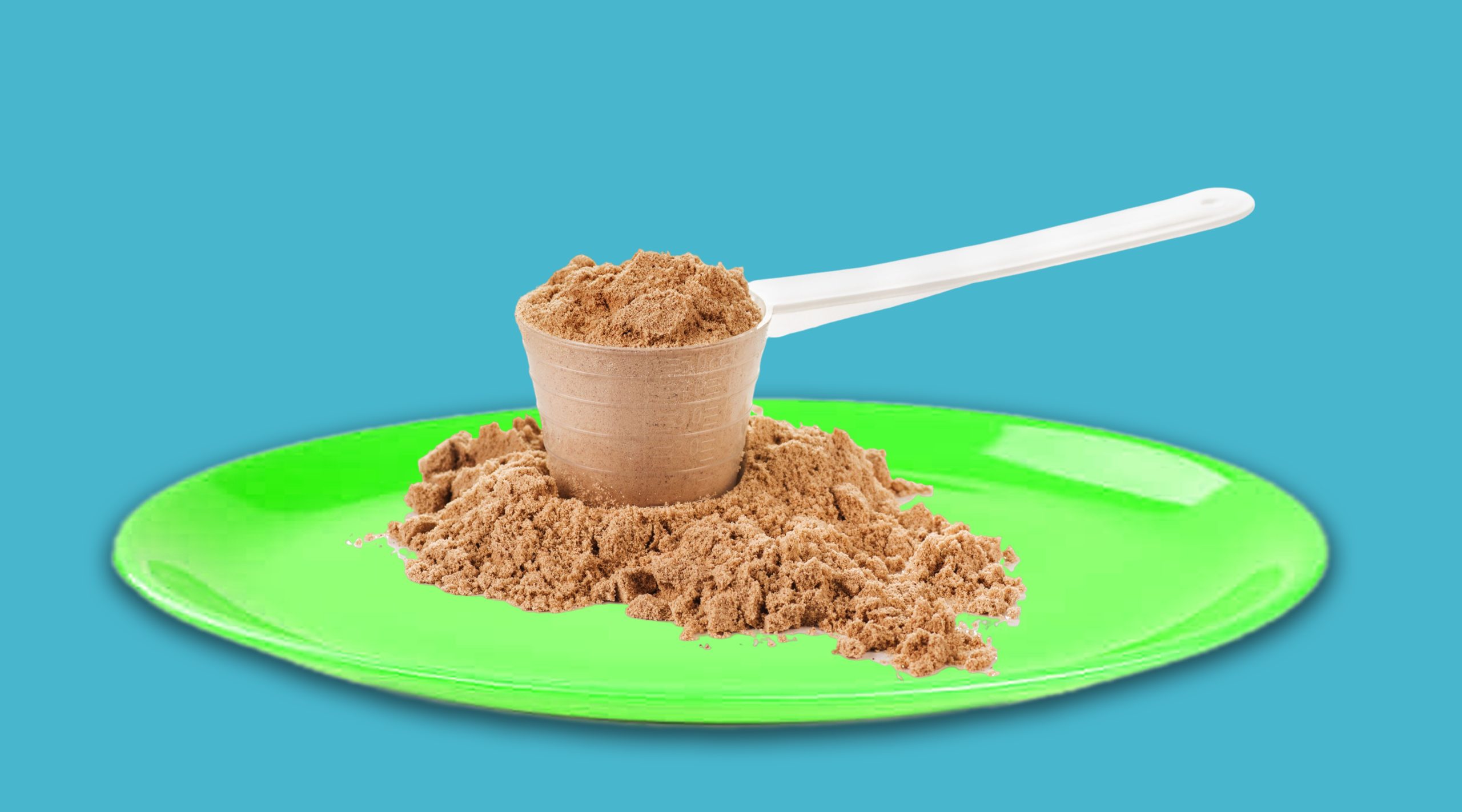We have all been eating curd and whey protein before it was introduced as a specific essential nutrient available in bars and shakes. Many people wonder whether whey protein is vegetarian or non-vegetarian. To answer it, whey is a vegetarian protein that is derived from milk.
How is whey protein made?
Well, whey protein is a by-product of the cheese-making process. Milk is made up of two proteins: casein and whey. When enzymes are added to separate the curd from the liquid whey, it is then pasteurized, and the protein is concentrated and isolated. To achieve whey protein, membrane filtration and ion exchange technology are used.
What are the physical, chemical, and biological properties of whey protein?
Whey protein is categorized as a complete protein as it contains all nine essential amino acids and is low in lactose content. It is a water-soluble protein that is absorbed faster as compared to other protein sources. Whey protein has eight proteins: beta-lactoglobulin, Alpha-lactalbumin, Glycomacropeptide, immunoglobulins, bovine serum albumin, lactoferrin, lactoperoxidase, and lysozyme.
What are the different types of whey protein?

There are three main types of whey protein: 1. concentrate, which is for infants and varies widely in protein, lactose, and fat content. 2. Isolates: they are good for lactose-intolerant people because they are high in protein and low in fat or lactose. 3. Hydrolysate: easy to digest as long peptide chains are broken into shorter ones.
In this blog, we will discuss the benefits and potential risks associated with the consumption of whey protein.
Benefits of consuming whey protein
- Weight loss

One study suggests that a group of people who were given whey protein all lost significant body fat as compared to the group of people who were on normal beverages. Hence, whey protein supports weight loss.
- Muscular body

Whey protein contains a branched chain of eight amino acids, which helps with muscle building. Muscles love protein, especially complete proteins like whey. So usually gym trainers and fighters are given whey protein as a nutrient supplement to build body mass, especially muscles.
- Reduces cholesterol
One comparative study was done to figure out which protein, casein or whey, has a significant effect on reducing cholesterol and insulin levels. In that study, 70 obese men and women were given whey protein and casein protein. After 12 weeks, lipid and insulin levels were measured, and the whey protein group showed a drastic reduction in total cholesterol and insulin levels as compared to the casein protein group.
- Asthma
In a small study, it was evident that 10 g of whey protein twice a day for 1 month can improve the immune response to asthma in children. In general, Glutathione (GSH) levels decrease in the lungs when a patient is in the early stages of asthma. Whey protein is a source of cysteine-rich protein and facilitates the synthesis of glutathione (GSH), a potent antioxidant in the airways that helps asthmatic reactions.
- Heart Disease
The research published states that whey protein helps reduce blood pressure and hypertension, which are responsible for cardiovascular disease and stroke. As discussed earlier, whey protein can help reduce LDL levels, which are often regarded as bad cholesterol and, if increased, will lead to blockage of the arteries.
- Healing properties
Whey contains chains of amino acids such as arginine, glycine, leucine, isoleucine, and valine, which help heal bones, skin, and muscle tissues from wounds or surgery.
- Anti-cancer properties
Results were published that show that whey protein concentrates help in cancer treatment. Whey protein eliminates or makes cancerous cells deficient in glutathione, which makes transformed cells susceptible to radiation and chemotherapy. Yet, extensive study needs to be done on this notion.
Potential risks of Whey protein
- Adverse events

People who are allergic to milk are supposed to be allergic to whey protein, which poses adverse events when whey protein is consumed. For instance, people may suffer from stomach pain, nausea, fatigue, headaches, loss of appetite, etc.
- Nutritional imbalance
May nutritionists are biased and against just relying on whey protein as it might upset the equilibrium of a balanced diet, which needs carbs, protein, minerals, vitamins, fat, etc., while whey protein is heavily pointing towards consumption of only whey protein.
- Acne
Heavy consumption of whey protein increases the production of IGF-1, which increases sebum production, causing acne breakouts. Apart from that, it can also promote the production of androgen hormone, which stimulates the oil glands to excess levels.
- Indigestion
People have experienced constipation, diarrhoea, gas, nausea, etc. from consuming whey protein because whey protein can deplete good bacteria from the gut and increase bad bacteria, which causes stomach problems.
- Kidneys
Whey protein increases plasma urea content, urinary calcium excretion, and urinary volume, which overburdens the kidney and hinders its smooth functioning, which sometimes may create kidney stones.
As a takeaway from the blog, it is of utmost importance to consider the dosage of whey protein. Generally, 20–40 grams of protein can be sufficient for a healthy body, weight gain, or muscle building. But if consumed in excess, it may cause severe health risks. Hence, it is best to discuss this with physicians before shifting to any routine or diet.








0 Comments